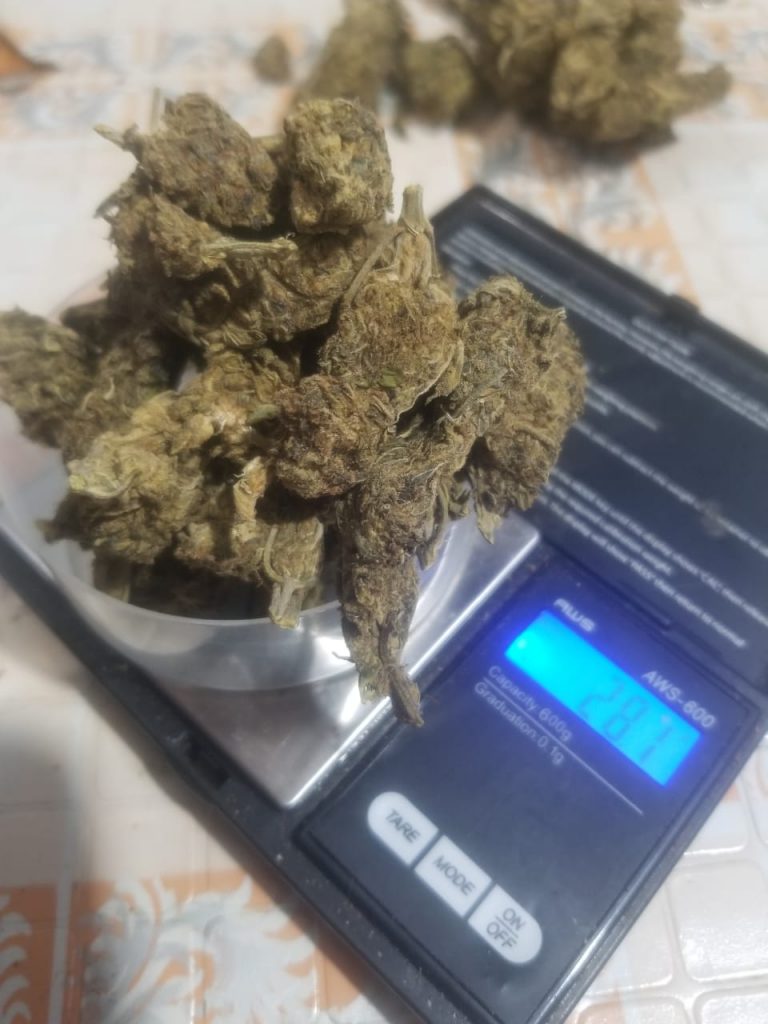Reefer madness: does cannabis cause psychosis?

Can smoking potent, high-grade marijuana send you mad?
In this two-part series, Newsday investigates the link between cannabis and psychosis.
Mary-Jane’s mania
Mary-Jane (not her real name), 29, ate a weed brownie at a friend’s house. She wasn’t a habitual smoker, but took a toke occasionally, like one would drink socially. This time, when the weed kicked in, she hallucinated, lost her sense of time and vomited.
She asked her psychiatrist about the event and he confirmed it was psychosis.
As many countries decriminalise cannabis, concerns about abuse and potential psychosis are being raised. The Dangerous Drugs (Amendment) Bill and the Cannabis Control Bill were laid in Parliament on November 21. They aim to decriminalise marijuana – allowing people to carry up to 30 grammes without being charged – as well as to formalise and regulate the industry.
Mary-Jane was diagnosed with borderline personality disorder and type two bipolar disorder. She's been in mental healthcare for ten years and takes mood stabilisers and antidepressants. That psychotic episode happened three years ago.
The UK's National Health Service (NHS) defines psychosis as, "A mental health disorder where people become temporarily disconnected from reality and may see things that are not there, hear voices, or become paranoid or delusional.
"People who have taken large doses of marijuana may experience an acute psychosis, which includes hallucinations, delusions, and a loss of the sense of personal identity. These unpleasant but temporary reactions are distinct from longer-lasting psychotic disorders, such as schizophrenia, that may be associated with the use of marijuana in vulnerable individuals."
Chocolate, sex, Facebook and cannabis all trigger a release of dopamine, causing pleasure and satisfaction in the reward system. Psychology Today defines dopamine as the "feel-good neurotransmitter." A neurotransmitter allows for communication in the nervous system between nerve cells.
The article says: "People with low levels of dopamine may be more prone to addiction; a person seeking pleasure via drugs or alcohol or food needs higher and higher levels of dopamine. This neurotransmitter enables us not only to see rewards but to take action to move toward them."

Psychiatrist Prof Gerard Hutchinson told Newsday early and heavy use of marijuana leads to more dopamine release, and long-term use diminishes or blunts the dopamine response. Early and heavy use of potent varieties of cannabis – with more than 40 per cent THC (tetrahydrocannabinol), the psychoactive aspect of cannabis – makes people more likely to suffer psychosis.
"In young people it seems to be more damaging and have the potential to happen again and lead to long-term problems with repeated use. In older people, it tends to be more benign."
Stress
There is an interaction between stress, cannabis use and psychosis. If a person is under stress or has been under stress, the changes in their brain will make them susceptible to psychosis.
"Psychosis is more common from people in low socio-economic communities than those in higher socio-economic communities and that's one of the reasons. Those two factors are related to dopamine in the sense that dopamine is your pleasure neurotransmitter, but it is also sensitive to stress. The interaction between stress and marijuana becomes more difficult to predict."
Some people smoke to relieve their stress. Hutchinson said. In low doses, and if the weed does not have too much THC, then it will help soothe stress because of cannabidiol (CBD).
"The more CBD and the less THC it (the weed) has, the better. The more THC and the less CBD, the more likely to cause damage.
"Of course, when you get it (weed), you don't know what's in it.
"The key thing is control."
One of the benefits of decrimininalisation, Hutchinson said, is: "You'll be able to put some control and force sellers to tell you what percentage of what they are selling. The big problem with the trade is when you buy something, you don't know what you are buying."
Is it marijuana psychosis or just psychosis?
Hutchinson said most young people who go to St Ann's Psychiatric Hospital have a history of heavy marijuana use, particularly young men.
"Whether it is cannabis or marijuana-induced psychosis is a whole different discussion," he said.
There are people who are predisposed to psychosis whose use of marijuana triggered the condition, and people who would have developed psychosis even if they didn't use cannabis.
"The test is for you to have the psychosis, stop using it and then the psychosis goes away.
"But most young people continue to use. They never come off of it, so it is hard to tell how much it's contributing to their condition."
Hospitals diagnose
marijuana-induced psychosis frequently, Hutchinson said, but he is uncertain if rigorous testing was done to draw that conclusion.
He described research into the medicinal benefits of cannabis as in its "early days." There are a number of uncertainties over the benefits and problems of consuming marijuana and its link to psychosis.
Cannabis and psychosis study
Researchers from 18 research centres around the world, led by King's College, London and South London and Maudsley NHS Foundation Trust in the UK, did a study on cannabis and psychosis with a sample set of 901 people with psychosis and 1,237 people without.
They looked at people who experienced an episode of psychosis. The participants were asked their age, gender, ethnicity, socio-economic background and drug use including alcohol, tobacco, various strengths of cannabis and synthetic narcotics.
An NHS article, headlined Daily use of high-strength cannabis increases risk of psychosis, gave a rundown of the study.
The results showed: "Any cannabis use increased the risk of a first psychotic episode by 30 per cent. Daily cannabis use increased the risk of a first psychotic episode more than threefold, and daily use of high-strength cannabis increased the risk almost fivefold."
The NHS did not know if any of the people in the study had schizophrenia – a long-term condition – as the researchers only investigated the first psychotic episode.
The NHS article said the study did not prove cannabis caused psychosis, as some people in the control group used high-strength cannabis but did not experience psychotic episodes.
It said, "While we cannot be sure that cannabis was the cause of psychosis for all participants in the study, the findings do need to be taken seriously... (The findings) confirm previous evidence of the harmful effect on mental health of daily use of cannabis, especially the high-potency types."
The study was limited, as the researchers
judged the strength of the strain based on the names people gave, such as skunk. But the strain itself was not tested and there was no way for the researchers to definitively know the potency of the cannabis. The study was based on answers to the questionnaire and not medical tests.
Conflicting views on cannabis and psychosis

Expert cannabis consultant for the Attorney General Marcus Ramkissoon disagreed with the findings of the study, as the research only focused on people who experienced psychosis, making the results skewed.
Ramkissoon is a research scientist with over 70 certifications in cannabis courses, 56 of which are medical courses.
The names of strains of marijuana, he said, get misused by weed dealers, and most people don’t know what they are smoking or fully understand the potency of the strain.
The block press Colombian in the TT market, he said, consists of a number of different strains, and the name kush gets overhyped as a potent strain. He agreed that stress and the brain’s dopamine threshold play a major factor in whether someone experiences psychosis.
Drug abuse affects dopamine levels, causing a significant decrease in certain receptors and release. Mental health disorders such as depression, schizophrenia, and psychosis are linked to dopamine deficiency.
Ramkissoon said regular users get accustomed to the release of dopamine into their system.
"If you use it for one day...what happens is, you go past your (dopamine) threshold and you'll feel the high like everybody else feels. If you don't use it for the next few days, you're good. But if you continue to use it frequently for a week, ten days or two weeks, you will keep the dopamine past the threshold. Your brain, your system becomes accustomed to this extra level of dopamine."
High percentage of THC was a cause of concern for psychosis triggers. There’s tasty weed and there’s strong weed. The best grades are a combination of both. In part two of the Cannabis and Psychosis series, Newsday discusses the different potencies.

Comments
"Reefer madness: does cannabis cause psychosis?"